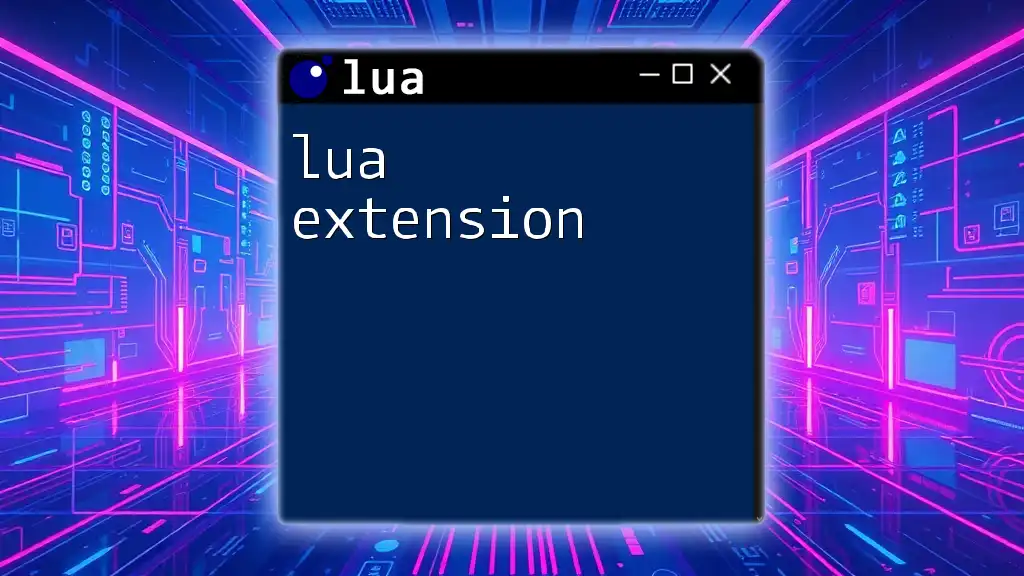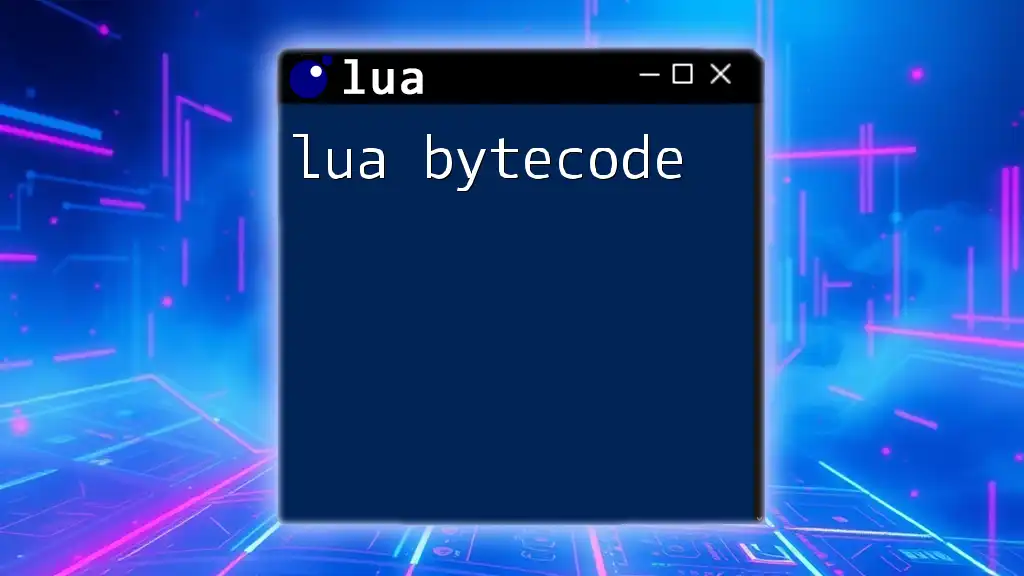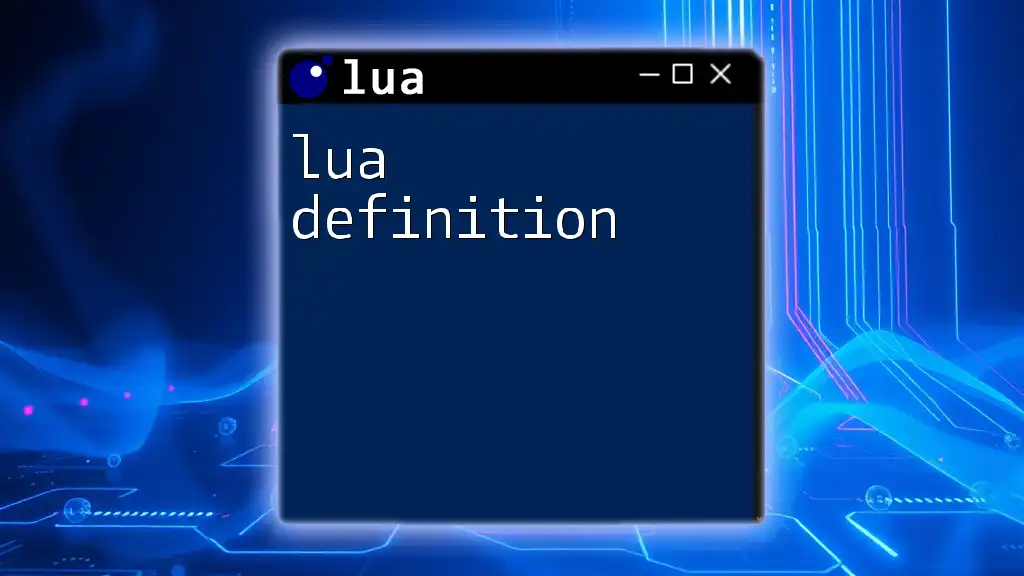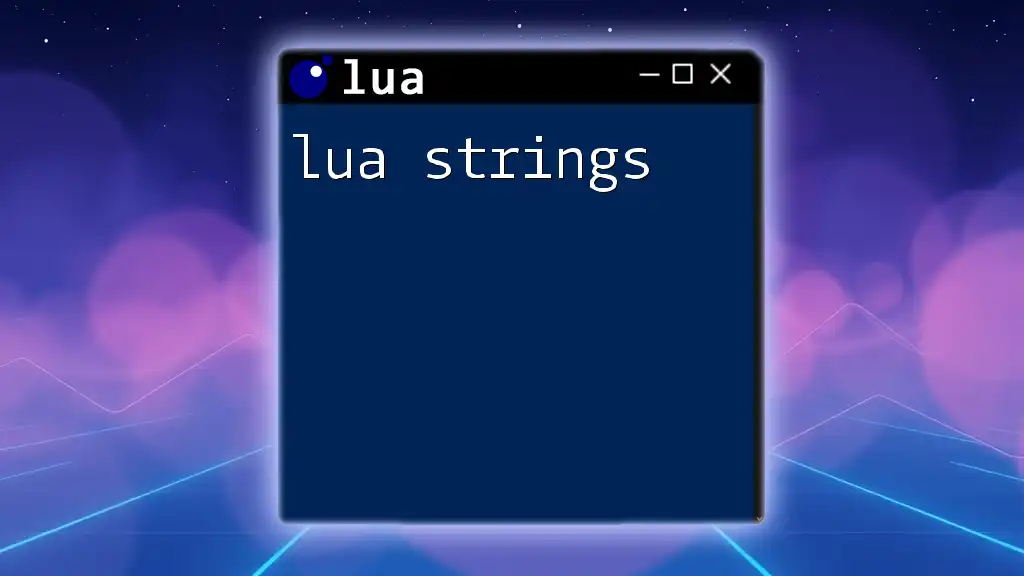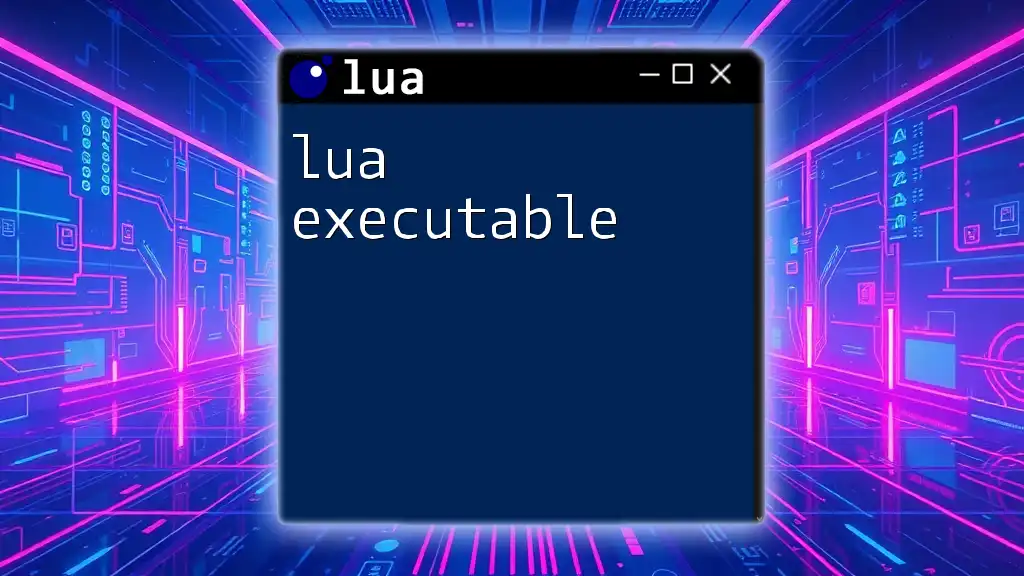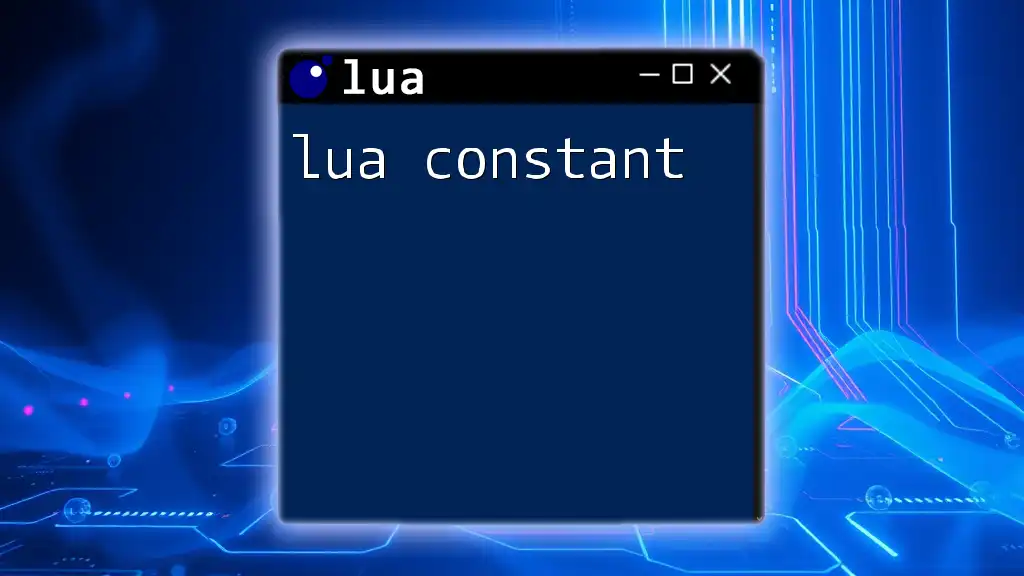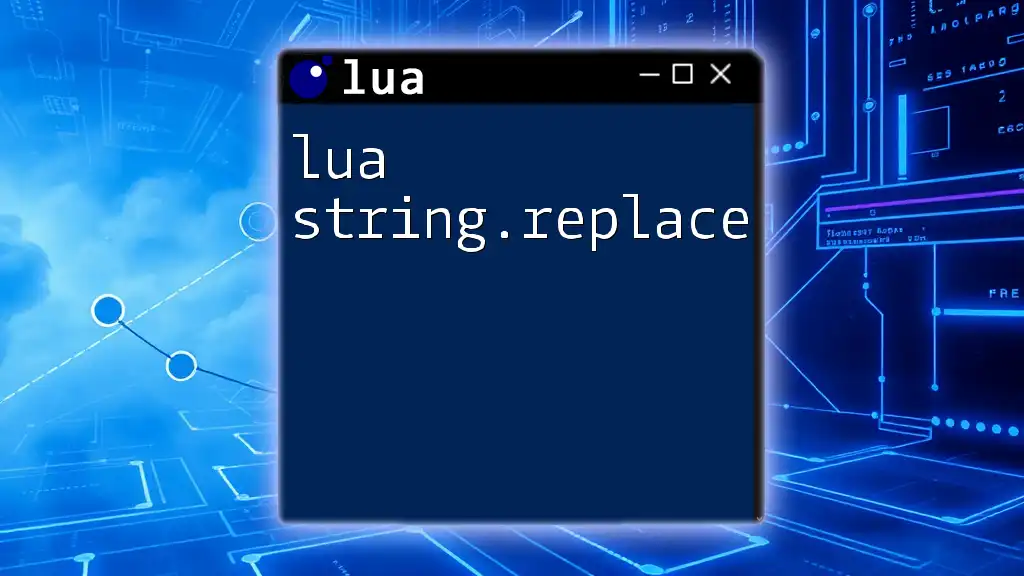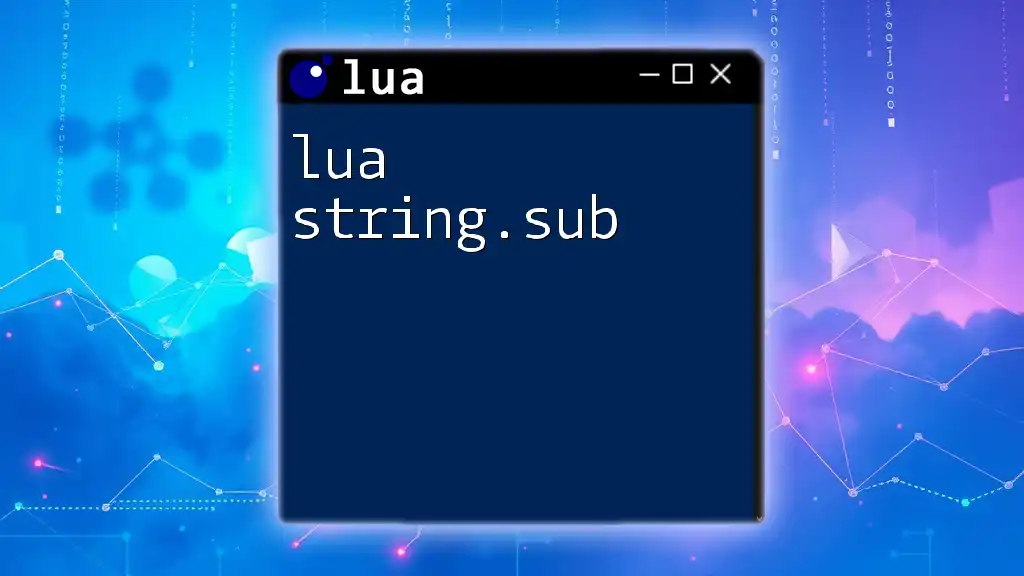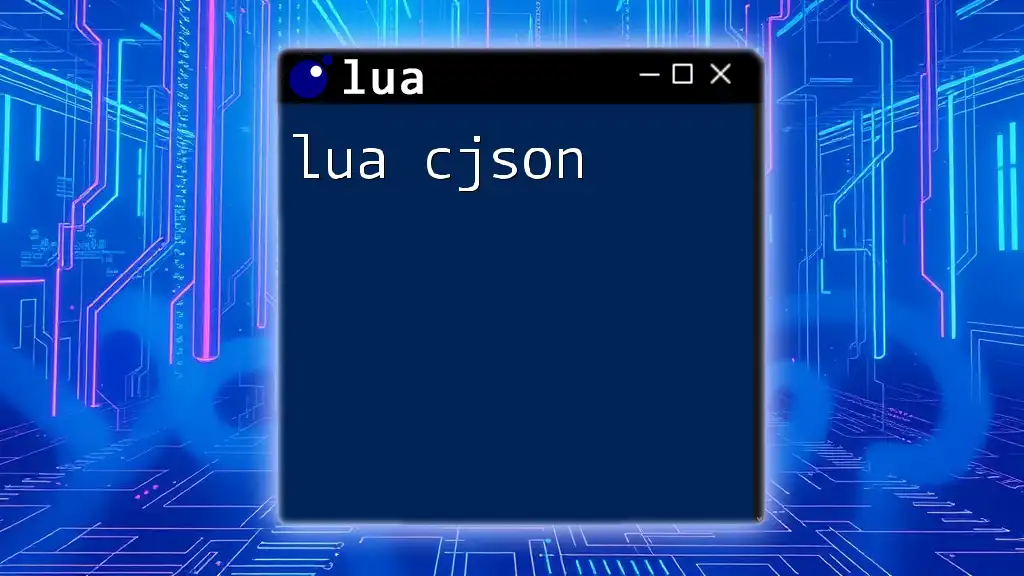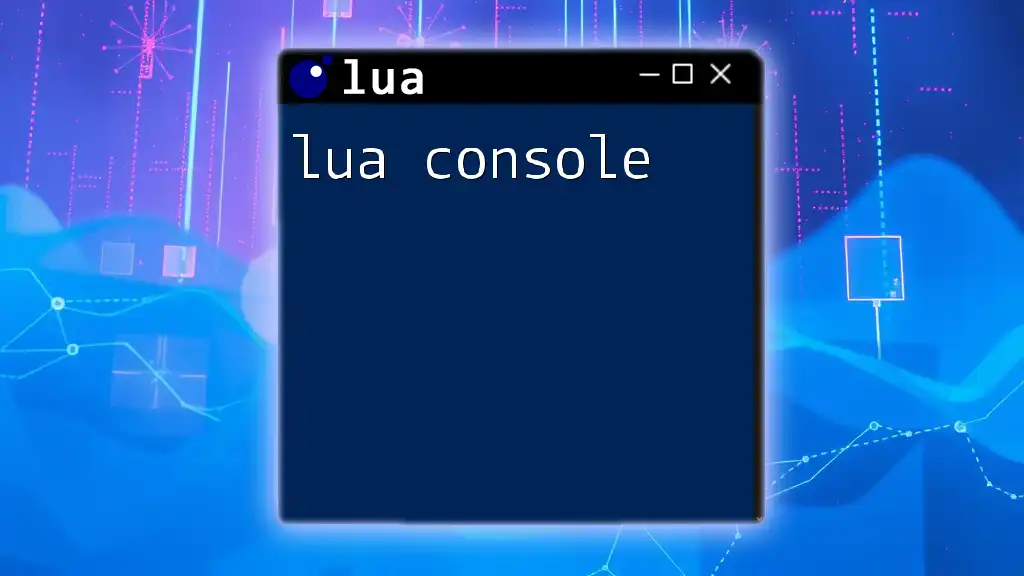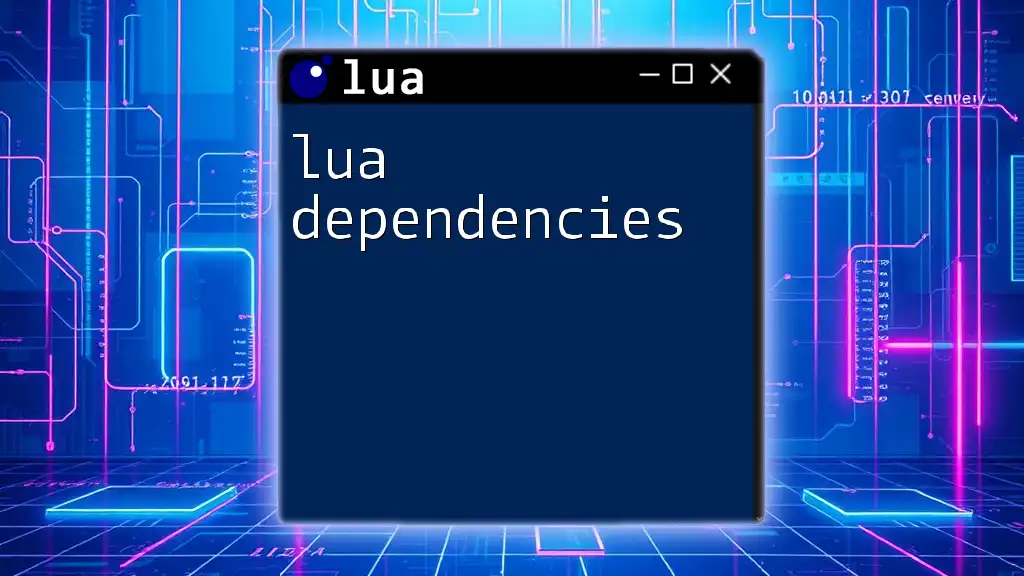A Lua extension enhances the functionality of the Lua programming language by allowing developers to add custom modules or libraries, enabling more advanced features and capabilities.
Here's a simple example illustrating how to create and use a Lua extension:
-- Define a simple Lua extension
local my_extension = {}
function my_extension.greet(name)
return "Hello, " .. name .. "!"
end
-- Using the extension
local greeting = my_extension.greet("World")
print(greeting) -- Output: Hello, World!
What is Lua?
Lua is a powerful, efficient, lightweight scripting language designed to be embedded in other applications. Its flexibility and easy integration with C and C++ make it a popular choice in gaming and embedded systems. Due to its simplicity, Lua allows developers to create applications quickly, making it ideal for prototyping and scripting tasks.
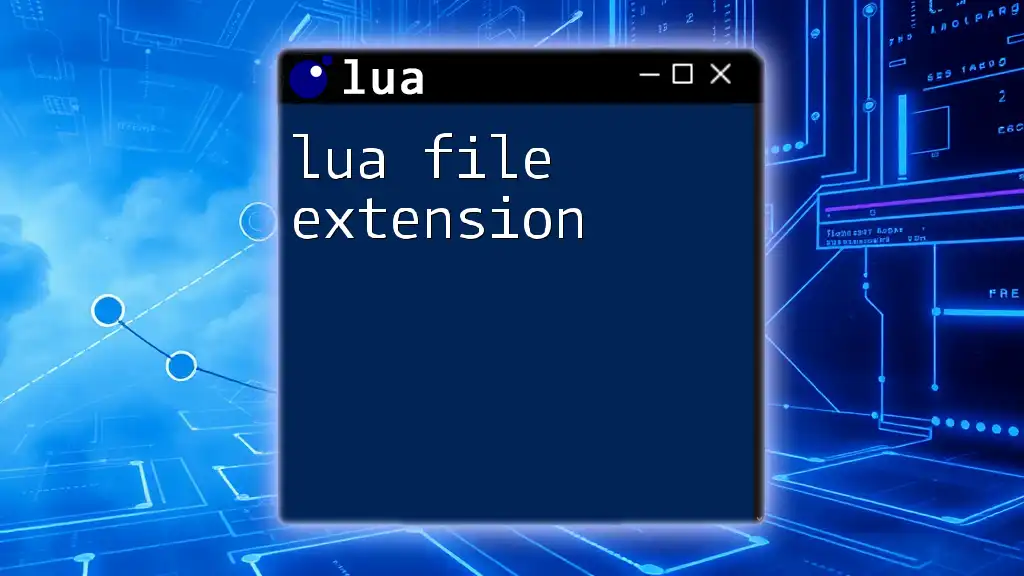
What are Lua Extensions?
Lua extensions refer to additional libraries or modules that enhance the core functions of Lua. By leveraging lua extensions, developers can extend the programming language's functionalities, introduce new features, and streamline performance. These extensions are vital for creating more robust applications, allowing developers to implement complex functionalities without cluttering the core Lua environment.
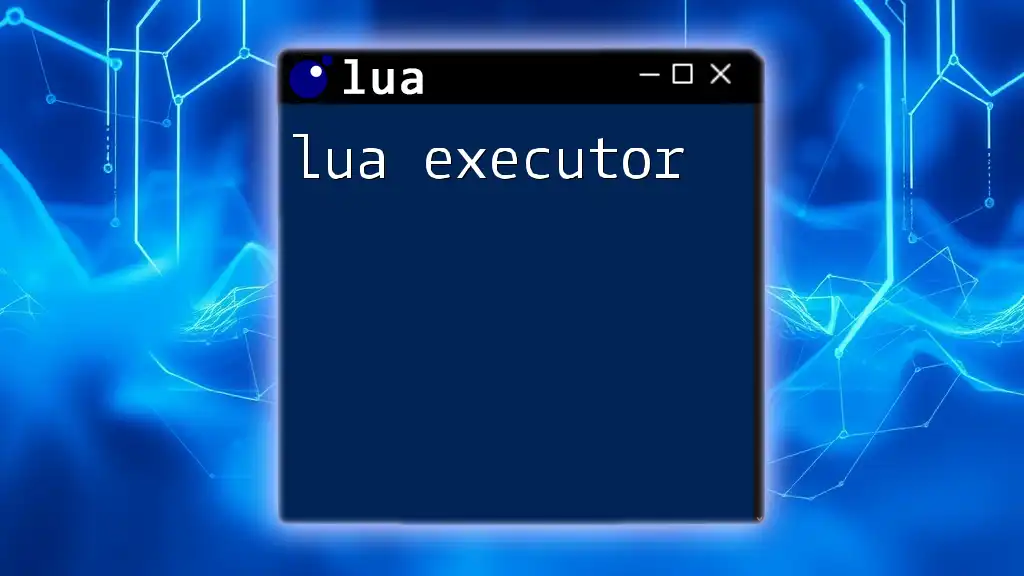
Benefits of Using Lua Extensions
Extended Functionality
One of the primary advantages of using lua extensions is their ability to provide extended functionality. They introduce new commands, libraries, and features that are not part of the standard Lua offering. For instance, consider the widely used LuaSocket library, which enables network capabilities in Lua applications. By using it, developers can create socket connections, manage protocols, and handle data transfer effectively, which would be tedious without the extension.
Here’s an example of using LuaSocket to open a TCP connection:
local socket = require("socket")
local client = socket.tcp()
client:connect("www.example.com", 80)
client:send("GET / HTTP/1.1\r\nHost: www.example.com\r\nConnection: close\r\n\r\n")
Improved Performance
Lua extensions often enhance performance by providing optimized solutions tailored to specific tasks. For performance-critical applications, particularly in gaming, integrating C-based extensions can result in significant speed improvements. For example, code written in C can be called directly from Lua to handle computationally intensive operations.
When comparing native Lua execution to calls made from an extension, developers often find noticeable differences, especially when benchmarking performance metrics.
Community and Support
The Lua community is vibrant and continuously expanding. Utilizing lua extensions allows developers to tap into a wealth of knowledge and support systems. Forums, documentation websites, and GitHub repositories often contain valuable information about popular extensions. Engaging with the community can lead to opportunities to collaborate, share knowledge, and contribute to ongoing projects, enhancing the overall Lua ecosystem.
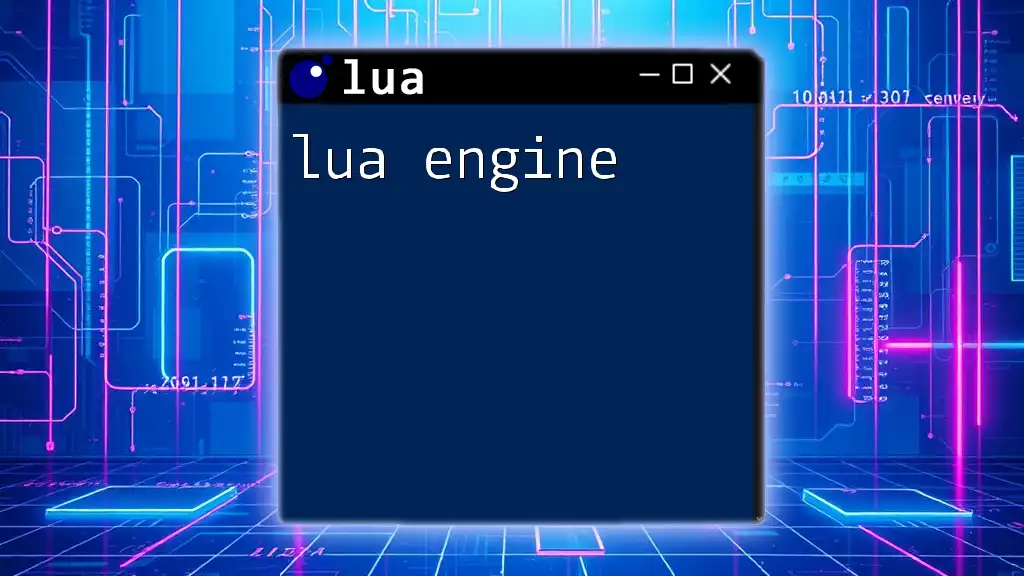
Types of Lua Extensions
Libraries
Libraries are collections of pre-defined functions that can be loaded into a Lua application. They allow for organized and efficient coding, reducing redundancy.
Here's how you might use the LuaSocket library to create a simple TCP server:
local socket = require("socket")
local server = assert(socket.bind("*", 12345))
while true do
local client = server:accept()
client:send("Hello! You are connected.\n")
client:close()
end
Modules
Modules are a way to structure Lua code into reusable components. They provide encapsulation, allowing functions and variables to maintain their scope. By using the `require` function, developers can easily import modules into their Lua scripts.
Example of creating and using a module:
myModule.lua (the module definition)
local mymodule = {}
function mymodule.functionA()
print("Function A called")
end
return mymodule
main.lua (using the module)
local mymodule = require("myModule")
mymodule.functionA()
C Extensions
For applications where performance is crucial, C extensions can be integrated into Lua. This process involves writing C code that Lua can call, enabling developers to execute resource-intensive tasks more efficiently.
A simple C extension function could look like this:
#include <lua.h>
#include <lauxlib.h>
static int lua_add(lua_State *L) {
int a = luaL_checkinteger(L, 1);
int b = luaL_checkinteger(L, 2);
lua_pushinteger(L, a + b);
return 1; // Number of return values
}
This function can then be registered and called from Lua scripts, offering substantial speed benefits compared to pure Lua functions.
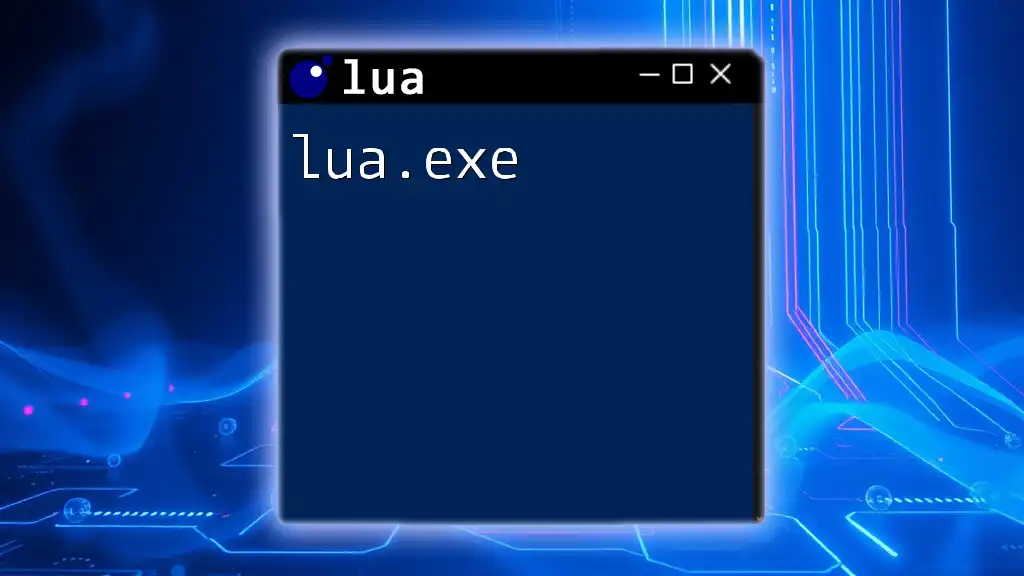
Installing Lua Extensions
Using LuaRocks
LuaRocks is a package manager for Lua, allowing for simple installation of extensions. It streamlines the process of adding libraries to your environment.
To install a package with LuaRocks, you simply run:
luarocks install <package-name>
Replace `<package-name>` with the extension you want to install, and LuaRocks will handle the rest.
Manual Installation
Some extensions do not have LuaRocks support or may need to be installed manually. Generally, this involves downloading the source code, extracting it, and following a set of instructions provided in the README file.
For example, to integrate LuaSocket manually, you would:
- Download the source code from the official repository.
- Follow the build instructions specific to your operating system, usually involving running commands in the terminal, such as `make` and `make install`.
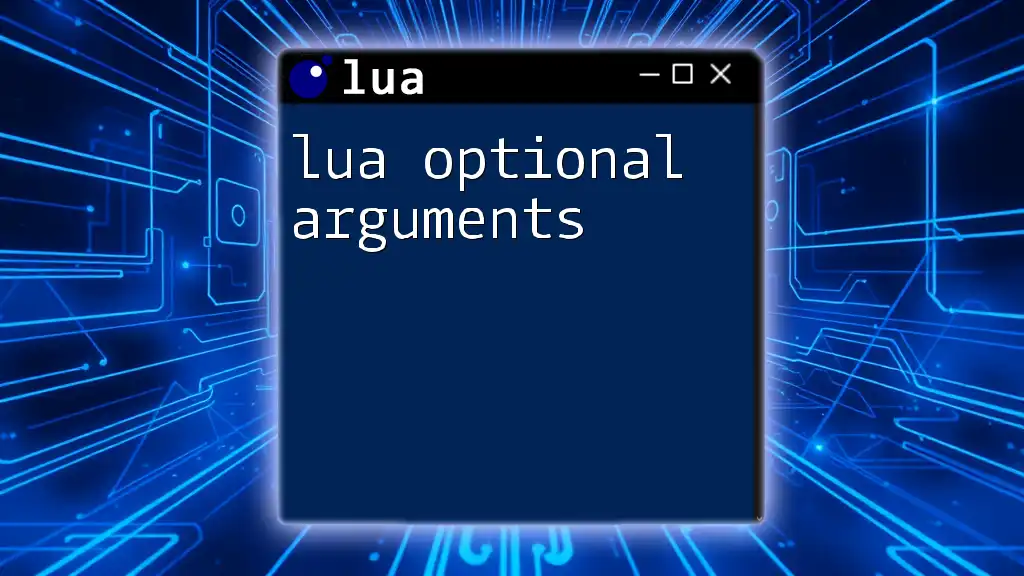
Creating Your Own Lua Extensions
Setting Up Your Development Environment
Before creating a lua extension, it’s crucial to set up your development environment correctly. Recommended tools include Visual Studio Code, Sublime Text, or even dedicated Lua IDEs that provide syntax highlighting, debugging capabilities, and project organization features.
Crafting a Simple Extension
Creating a basic lua extension involves defining the functionality you want to expose and then implementing it in Lua.
For instance, let's create a simple extension that provides math operations:
local mymath = {}
function mymath.add(a, b)
return a + b
end
function mymath.subtract(a, b)
return a - b
end
return mymath
After creating this module, it can be saved and imported into any Lua script for use.
Testing Your Extension
Testing is vital in extension development. Best practices include writing comprehensive unit tests to cover all functions and edge cases. By using frameworks like LuaUnit, developers can ensure the reliability of their extensions.
For example, testing the `mymath` module might involve:
local mymath = require("mymath")
assert(mymath.add(2, 3) == 5)
assert(mymath.subtract(5, 2) == 3)
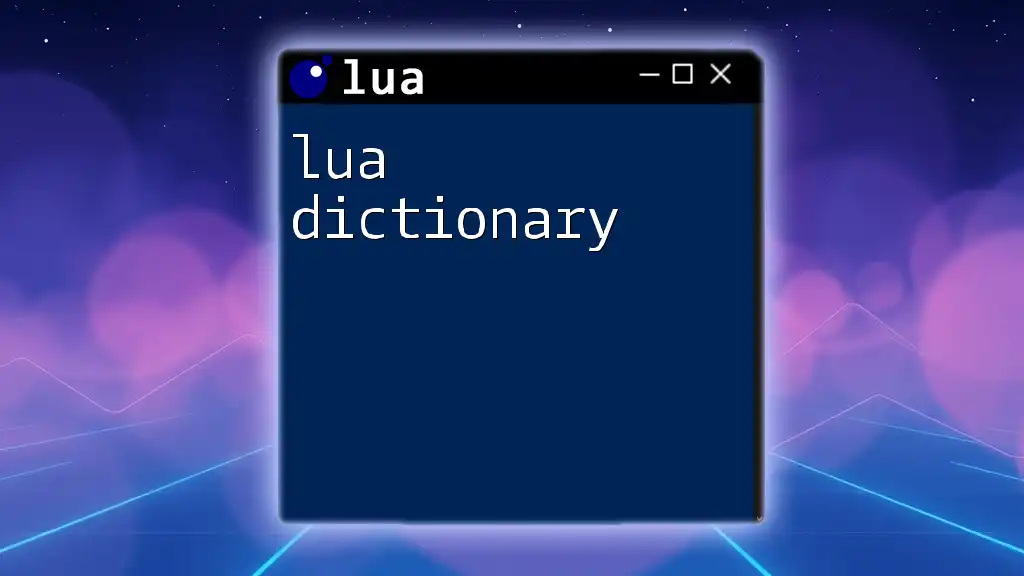
Best Practices for Lua Extension Development
Follow Lua Style Guides
Maintaining a consistent code style is crucial for readability and collaboration. Use established Lua style guides, and consider running your code through linters to ensure adherence.
Documentation and Examples
Providing thorough documentation is essential for any extension. Clear instructions, usage examples, and potential pitfalls can make your extension more user-friendly. Developers often refer to documentation to understand how to effectively implement your extension in their projects.
Version Control
Using version control systems like Git is essential for tracking changes, collaborating with others, and managing different versions of your extension. By maintaining a repository on platforms like GitHub, developers can share their work and receive feedback from the community.
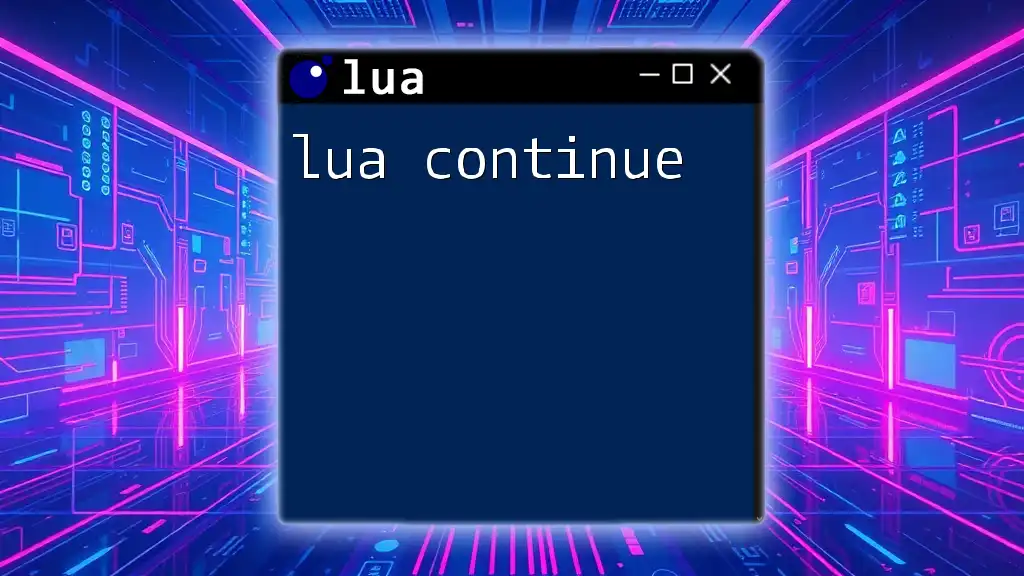
Popular Lua Extensions
Several lua extensions have gained popularity due to their versatility and functionality:
-
LÖVE: A framework for developing 2D games with Lua. It enables developers to create games using an intuitive API, with capabilities for graphics, sound, and physics.
-
LuaSocket: As mentioned earlier, this library simplifies network programming with functionalities for TCP, UDP, and HTTP.
Here's how one might use LÖVE to create a simple game loop:
function love.load()
x = 50
y = 50
end
function love.update(dt)
x = x + 100 * dt
end
function love.draw()
love.graphics.circle("fill", x, y, 20)
end
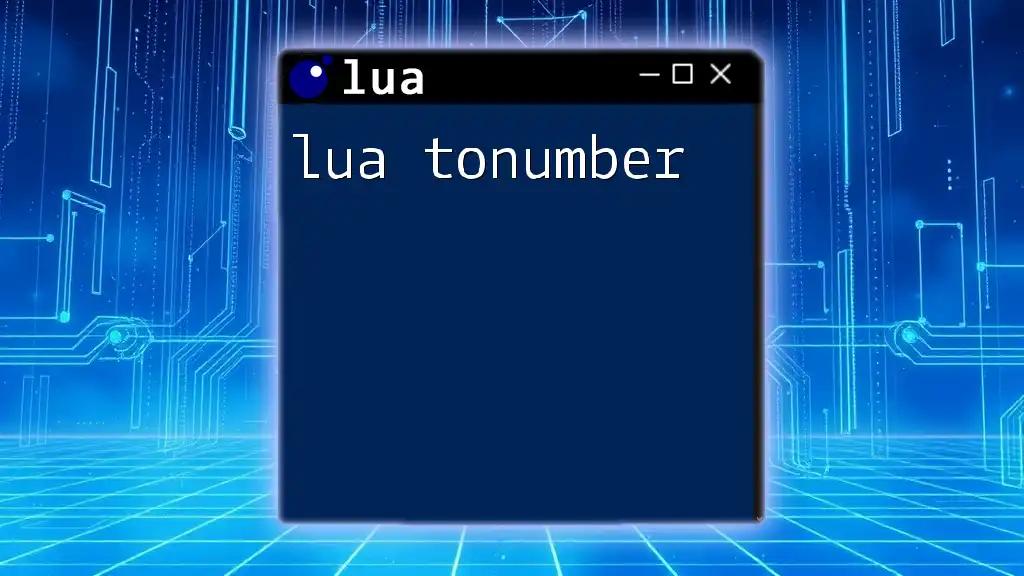
The Future of Lua Extensions
Looking forward, the Lua ecosystem is expected to grow, offering even more options and libraries for developers. The community remains active in developing new extensions while enhancing existing ones, making Lua an enduring choice for various programming needs.
Encouraging readers to explore and create their own lua extensions can lead to greater innovation and collaboration within the Lua community.
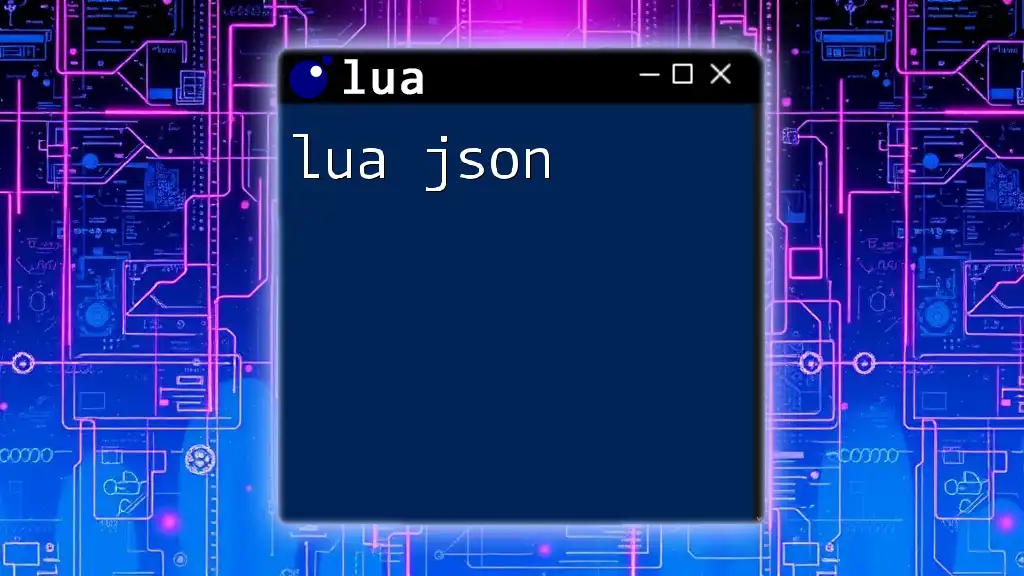
Additional Resources
For more information about Lua extensions, developers can visit:
- The official Lua documentation, which provides in-depth technical details.
- Community forums where users can ask questions, share projects, and seek assistance.
- GitHub repositories where many popular and emerging Lua extensions are hosted, allowing easy access to source code and ongoing development efforts.

